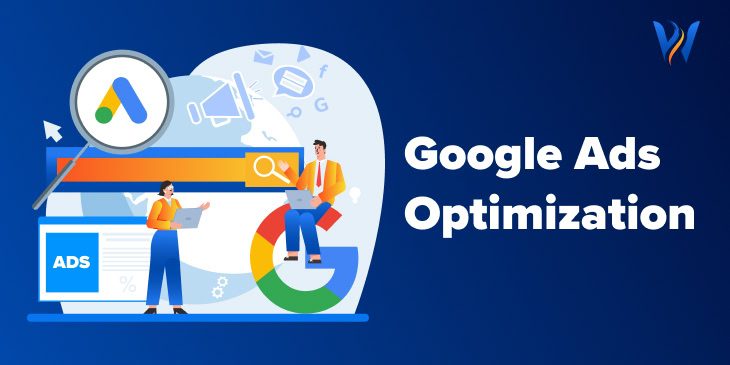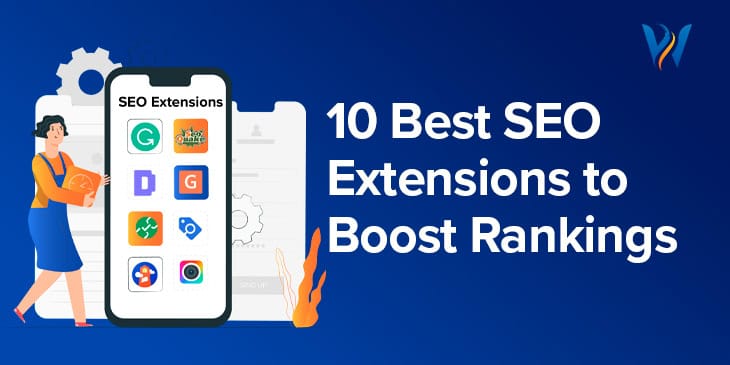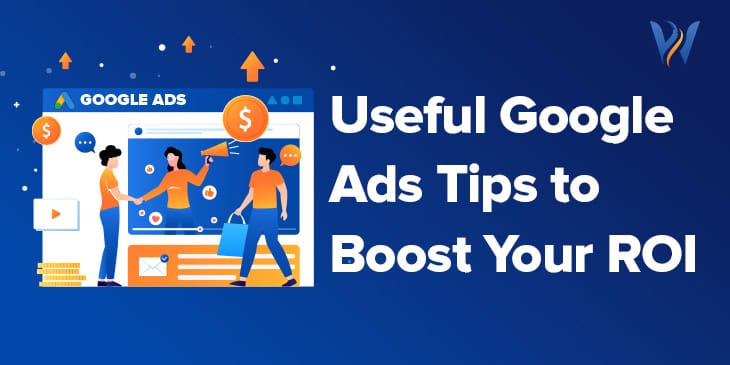Running an online store is exciting, but choosing the right platform can feel tricky. You want a tool that makes building, running, and growing your store easier, not harder. That’s where two of the most talked-about options—Shopify and woo commerce—come into the picture. Both give you the power to sell products online, yet they work in very different ways.
In fact, more than 875 million people shopped through Shopify stores in 2024, showing just how huge the demand can be when the right platform is in place.
Some store owners want a fast setup with ready-made tools. Others prefer full control, with the freedom to change every detail.
Understanding the basics of each choice will help you decide what’s best for your business and your goals.
What Is an Online Store Platform?
An online store platform is the base that supports everything you do to sell online. Think of it as the system that brings your website, your products, and your customers together in one place. Without it, you would need separate tools for payments, shipping, design, and security. With it, you can manage all those things in a single dashboard.
“An online store platform saves you time and helps you focus on selling, instead of juggling a dozen separate tools.”
Here’s what an online store platform usually does:
- Lets you build and design your store’s website
- Helps you upload and organize your products
- Connects payment gateways so people can buy safely
- Offers tools to manage shipping, taxes, and orders
- Provides reports so you can track sales and growth
Shopify is an all-in-one service. It takes care of hosting, updates, and security while giving you features like the shopify website builder. You can pick from hundreds of shopify themes and customize your site until it matches your brand. If you’re ready to go live, you can hit “shopify create website” and start selling within hours.
On the other hand, WooCommerce is a woocommerce plugin for WordPress. This means it attaches to your WordPress site and adds store features. With Woo, you need to handle hosting yourself, so people often search for web hosting woocommerce plans. This option gives you more control over your design, features, and costs. For example, woocommerce pricing can be lower upfront because the plugin itself is free, but you may spend more on extensions or tech help later.
Both platforms also connect to marketing tools. For example, you can link to Meta Ads to reach shoppers on Facebook and Instagram. Some advanced businesses even use LLM optimization tools to make product descriptions or chat support smarter.
Why Do Business Owners Care About This Choice?
Picking a platform is one of the most important business decisions you’ll make. The platform you choose impacts daily tasks, growth, and how happy your customers feel when they shop.
Here’s why business owners care:
- Ease of use
- Some want simple tools, fewer steps, and less tech stress. Shopify online shopping makes this smooth by handling updates and giving you pre-built tools.
- Others like freedom and control. WooCommerce lets you adjust every corner of your store, but it also asks you to manage updates and settings yourself.
- Some want simple tools, fewer steps, and less tech stress. Shopify online shopping makes this smooth by handling updates and giving you pre-built tools.
- Costs and value
- WooCommerce pricing can be attractive because the plugin is free, but keep in mind costs for themes, hosting, and paid add-ons.
- Shopify has clear monthly plans, and you can add apps as needed. Costs may add up, but support and hosting are included.
- WooCommerce pricing can be attractive because the plugin is free, but keep in mind costs for themes, hosting, and paid add-ons.
- Growth potential
- Business owners think ahead. Can this platform handle more products, new staff, or bigger ad campaigns?
- Shopify offers levels like shopify plus, built for bigger stores with custom needs.
- WooCommerce works for small and large stores, but scaling often depends on your hosting power and developer help.
- Business owners think ahead. Can this platform handle more products, new staff, or bigger ad campaigns?
- Marketing and sales
- Platforms link to tools for ads, emails, and SEO. With both Shopify and WooCommerce, you can track performance and sell across social platforms.
- Special uses
- Some owners look for features like dropshipping with woocommerce, which lets you sell products without holding inventory. Shopify also supports dropshipping apps.
Business owners care about this choice because it changes their daily experience. A platform that’s too hard or too costly can slow them down. A platform that fits their style can make running a store faster, smoother, and even fun.
What Makes Shopify and WooCommerce Popular?
Both platforms dominate the e-commerce world because they fit different types of business needs. Let’s look at why they are popular.
Shopify is known for being easy to start and reliable:
- You don’t need to worry about hosting or security—it’s all managed for you.
- The shopify website builder works with drag-and-drop tools, so even beginners can design a store.
- Shopify partners offer apps, services, and support that add extra features or handle advanced needs.
- The variety of shopify themes helps stores look professional from day one.
- Larger businesses often upgrade to shopify plus, which gives advanced analytics, automation, and support.
WooCommerce is popular because it’s flexible and deeply connected to WordPress:
- As a woocommerce plugin, it adds store features to any WordPress site.
- Business owners love the ability to customize every part of their store.
- They can pick their own web hosting woocommerce plan and adjust it for speed, storage, or traffic.
- WooCommerce works well for special setups like dropshipping with woocommerce, memberships, or digital downloads.
- Many developers like working with it, so the ecosystem of themes and extensions is huge.
Another reason both are popular is marketing power. You can connect to tools like Google Analytics, SEO plugins, and Meta Ads. More advanced teams even use LLM optimization to improve content, support, or product search.
Both Shopify and WooCommerce have strong communities too. Business owners can find guides, forums, and experts willing to help. That sense of support is a big reason many choose to stay with their platform for years.
Shopify vs WooCommerce: Which E-commerce Platform Is Better for Business?
Choosing between Shopify and woo commerce is one of the biggest steps for anyone who wants to sell online. Both platforms give you the tools to build and run a store. The difference is in how they work, how much control you get, and how much time you want to spend on setup and management.
Shopify vs WooCommerce For Business
| Feature / Category | Shopify | WooCommerce |
| Type of Platform | Fully hosted SaaS (all-in-one solution) | Open-source woocommerce plugin for WordPress |
| Ease of Setup | Very quick; built-in shopify website builder and one-click shopify create website tools | Requires WordPress install, domain, and web hosting woocommerce before setup |
| Design & Themes | 100+ official shopify themes, mobile-friendly, polished | Thousands of WordPress themes, very customizable, but quality varies |
| Customization | Limited compared to open-source; advanced changes often need shopify partners | Highly flexible; you control every detail with plugins and code |
| Costs | Monthly fee ($39–$399+ depending on plan); apps may add costs | Free plugin, but pay for hosting, domain, themes, and add-ons (woocommerce pricing depends on choices) |
| Payments | Shopify Payments built-in; fees for outside gateways | Wide range of payment gateways available; setup and maintenance are on the store owner |
| Checkout | Optimized, secure, and trusted checkout; fewer customization options | Flexible checkout design; can add fields or blocks but requires extra plugins |
| Marketing Tools | SEO-friendly, easy links to Facebook/Instagram (shopify online shopping) and Meta Ads | SEO strength from WordPress; broad plugin support for ads, email, and analytics |
| Dropshipping | Supports apps for print-on-demand and dropshipping | Popular for dropshipping with woocommerce, many plugin choices |
| Scalability | Grows smoothly; enterprise plan shopify plus offers automation and premium support | Can handle large stores, but performance depends on hosting and developer setup |
| Security | PCI-DSS compliant by default, managed hosting | Security is up to you; hosting, SSL, and plugin updates must be managed |
| Support | 24/7 customer service + official guides + shopify partners ecosystem | Community forums, plugin dev support, and third-party experts |
| Performance | Fast, optimized servers managed by Shopify | Performance varies; needs good web hosting woocommerce and caching |
| Best Fit For | Beginners, small to medium businesses, or growing brands wanting simplicity and speed | WordPress users, developers, or businesses needing full control and custom features |
Here’s a closer look at the main areas that matter most to business owners.
Ease of Use
One of the first things people ask is, “How easy is it to start?”
- With Shopify, setup is simple. You sign up, pick a theme, and use the shopify website builder to design your store. The menus are clear, and you don’t need to know any code.
- The platform even lets you push a button like “shopify create website” and have a working store ready in a few hours.
- You also get pre-built tools for payments, shipping, and taxes.
On the other hand:
- WooCommerce is a woocommerce plugin that connects to WordPress. You need a WordPress site first. Then you install WooCommerce and choose a hosting plan, often called web hosting woocommerce.
- The setup is flexible but takes more steps. You choose your own hosting, domain, and security settings.
- Some people love this control, but beginners might find it a bit overwhelming.
So if you want speed and simplicity, Shopify is often the better choice. If you want total freedom and already know WordPress, WooCommerce makes sense.
Design and Customization
A store’s look matters. Customers trust stores that feel clean, modern, and easy to use.
Shopify
- You can pick from hundreds of shopify themes. Many are free, and others cost a one-time fee.
- Themes are mobile-friendly and easy to adjust without code.
- For deeper changes, you can work with shopify partners—designers and developers who specialize in Shopify stores.
WooCommerce
- WooCommerce also offers many themes, both free and paid.
- You can customize everything since it runs on WordPress.
- You can use plugins for design, product pages, or checkout.
The main difference is control. Shopify keeps design options within a framework to keep stores fast and reliable. WooCommerce gives full design freedom but requires you to test, update, and sometimes fix things yourself.
Costs and Pricing
Money always matters. Let’s break down the basics of cost.
- WooCommerce pricing starts low because the plugin itself is free. But you need to pay for hosting, a domain name, and possibly paid extensions.
- You might also pay developers if you want advanced customization.
With Shopify:
- You pay a monthly plan. Prices depend on the level you choose, and higher plans come with more reports and lower transaction fees.
- Apps from the store may add extra monthly costs.
So which is cheaper?
- Small stores may find WooCommerce less expensive in the beginning.
- Larger stores or stores without tech support often find Shopify easier and more predictable in cost.
Payments and Checkout
The checkout process is where sales happen. A slow or confusing checkout can cause people to leave.
Shopify
- Shopify includes its own payment system with built-in fraud protection.
- You can also use other gateways, but Shopify charges a small extra fee for those.
- The checkout page is fast, secure, and trusted by millions of shoppers worldwide.
WooCommerce
- You can choose from dozens of gateways by adding extensions.
- Some gateways are free; others have costs.
- The flexibility is great, but you’re responsible for keeping everything updated and secure.
Marketing and Growth Tools
Selling online also means promoting your products. Both platforms connect to major marketing tools.
- Shopify has built-in features for SEO, discount codes, and social media. You can connect to Facebook, Instagram, and Google.
- WooCommerce also offers SEO tools through plugins and connects to platforms like Mailchimp or Google Analytics.
If you want to run social ads, both platforms support this. You can easily link your store to Facebook or Instagram through Meta Ads.
Dropshipping and Special Features
Some business owners don’t keep stock. Instead, they ship products directly from suppliers.
- Shopify has apps for dropshipping that are easy to install.
- WooCommerce supports dropshipping with woocommerce using plugins.
Both handle this well, but again, Shopify is simpler, while WooCommerce gives more control.
Scalability and Bigger Stores
What happens when your store grows?
- Shopify offers higher plans like shopify plus, which include advanced features, automation, and premium support. This is great for big companies with large teams.
- WooCommerce can also grow, but it depends heavily on your hosting. You may need to upgrade servers or hire developers as your site grows.
Both can scale, but Shopify handles the heavy lifting for you. WooCommerce puts growth in your hands.
Support and Community
When problems come up, help is important.
- Shopify has 24/7 support, live chat, and a big help center. You can also hire shopify partners for design, development, or marketing.
- WooCommerce has community forums, tutorials, and official support for extensions. Many web developers are familiar with it too.
The support style is different: Shopify offers direct help as part of the service. WooCommerce relies on community and hired experts.
Performance and Security
Customers expect stores to be fast and safe.
- Shopify hosts your store on its own servers, so speed and security are built in. You don’t have to manage updates or patches.
- WooCommerce depends on your hosting. A strong web hosting woocommerce plan makes your store fast. A weak plan can slow things down. Security is also your responsibility, though many plugins can help.
Who Should Choose Shopify?
Shopify is a strong choice if:
- You want to launch fast with easy tools.
- You don’t want to manage hosting or updates.
- You want clear monthly pricing.
- You plan to grow and may need shopify plus later.
- You like built-in marketing and simple connections to shopify online shopping apps.
Who Should Choose WooCommerce?
WooCommerce works best if:
- You already use WordPress and want to add a store.
- You want complete control over design and features.
- You are comfortable managing hosting and updates.
- You like flexibility in costs and features.
- You want special setups like memberships, custom products, or advanced SEO.
Conclusion
Both Shopify and WooCommerce can help you build a strong online store. Shopify focuses on ease of use, speed, and built-in tools. WooCommerce shines with flexibility, control, and deep WordPress integration. The best choice depends on your budget, skills, and long-term plans. When you weigh features like woocommerce pricing, shopify themes, or advanced tools like shopify plus, you’ll see which platform matches your business needs today and in the future.
If you want something ready to go with all the basics included, Shopify may be your best fit. If you love WordPress and want to build your own system piece by piece, WooCommerce could be the smarter choice. Either way, both platforms can support a successful online business.
Looking to take the next step?
Connect with Web India Inc. today and get expert guidance on building the right online store for your business!







